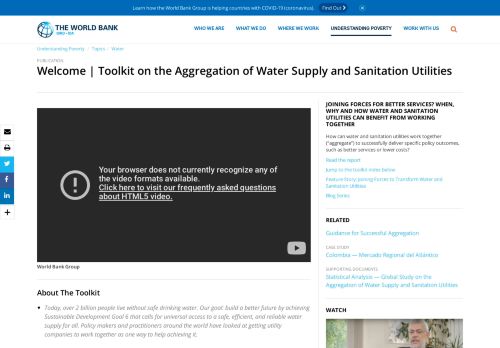Joining Forces for Better Services
The study “Joining Forces for Better Services? When, Why, and How Water and Sanitation Utilities can benefit from working together - Global Study on WSS Utility Aggregation Country Activities” aims to provide evidence-based guidance to policy makers and practitioners regarding when, why, and how water and sanitation utilities can work together (“aggregate”) to successfully deliver specific policy outcomes, such as better services or lower costs.
A statistical analysis based on IB-Net data, which cover 1,306 utilities from more than 140 countries, was conducted to understand in greater detail the potential gains from aggregation. Comprehensive time-series data for 79 actual aggregation cases identified in the data set were used to understand the effect of aggregations on disaggregated performance measures as well as differences in the cost structure.
To complement the hard data analysis, the study also investigated in greater detail a set of 14 case studies in seven countries, centering on the stakeholders involved, the decisions made, the roles of sector actors and their incentives, and the perceived outcomes with a view to bringing forward the essence of each case experience. The seven countries were Brazil, Colombia, Hungary, Indonesia, Mozambique, Portugal, and Romania.
Related
Welcome | Toolkit on the Aggregation of Water Supply and Sanitation Utilities
Toolkit on Water Supply and Sanitation Utilities Aggregation
